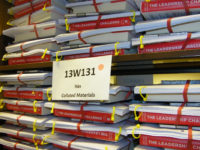The misleading claims on fair dealing extend beyond the impact of the 2012 reforms and the wildly exaggerated claim of 600 million uncompensated copies each year. Given that educational institutions have increased their licensing spending since 2012, Access Copyright has sought to downplay the investment at the copyright review by arguing that site licensing is primarily focused on access to journals while copying for coursepacks predominantly involves excerpts from books. The implication of the Access Copyright argument is that book copying remains as relevant as ever and that site licensing does not cover that form of copying. These arguments are misleading, however, since the data suggests that book copying is rapidly declining as part of coursepacks, coursepacks themselves represent a small percentage of course materials, and books are in any event an increasingly large part of university site licensing. Posts over the next three days will address each of these issues.
Archive for November 21st, 2018

Law Bytes
Episode 210: Meredith Lilly on the Trade Risks Behind Canada’s Digital Services Tax and Mandated Streaming Payments
byMichael Geist

July 15, 2024
Michael Geist
June 24, 2024
Michael Geist
Search Results placeholder
Recent Posts
 The Law Bytes Podcast, Episode 210: Meredith Lilly on the Trade Risks Behind Canada’s Digital Services Tax and Mandated Streaming Payments
The Law Bytes Podcast, Episode 210: Meredith Lilly on the Trade Risks Behind Canada’s Digital Services Tax and Mandated Streaming Payments  Abandoning Institutional Neutrality: Why the University of Windsor Encampment Agreements Constrain Academic Freedom and Freedom of Expression
Abandoning Institutional Neutrality: Why the University of Windsor Encampment Agreements Constrain Academic Freedom and Freedom of Expression  The Law Bytes Podcast, Episode 209: Peter Menzies on Why the Canadian News Sector is Broken and How to Fix It
The Law Bytes Podcast, Episode 209: Peter Menzies on Why the Canadian News Sector is Broken and How to Fix It  Why the University of Windsor Encampment Agreement Violates Antisemitism and Academic Freedom Standards
Why the University of Windsor Encampment Agreement Violates Antisemitism and Academic Freedom Standards  Know When to Fold Em: The Big Risk Behind Canada’s Digital Services Tax Bet
Know When to Fold Em: The Big Risk Behind Canada’s Digital Services Tax Bet

